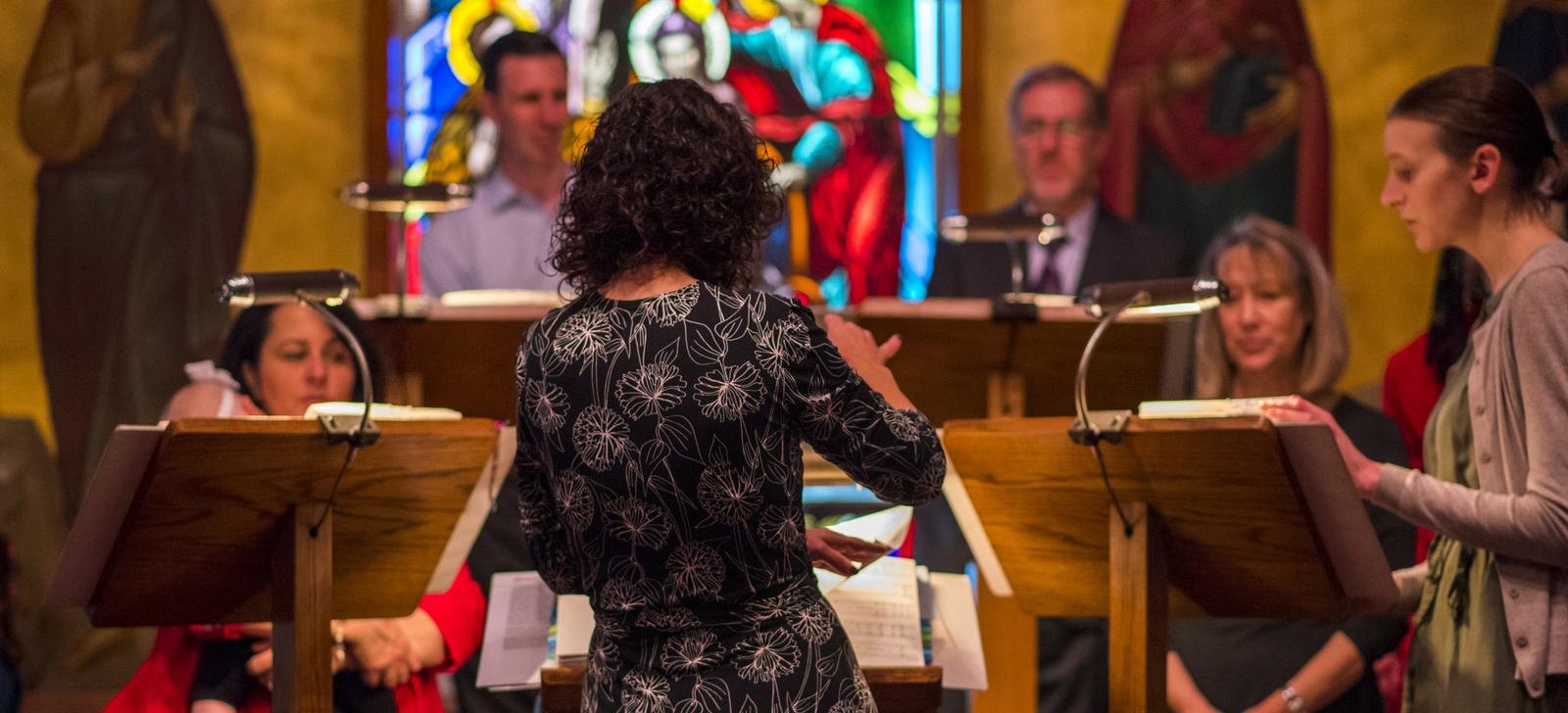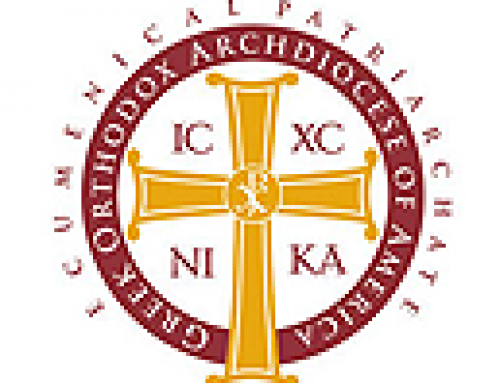This post was originally published on this site

The OCA Department of Liturgical Music will once again offer two of its popular introductory online courses for the benefit of church singers and conductors
- “Basic Conducting Techniques” (12 weeks) and
- “Basic Sight-Singing and Ear Training” (10 weeks)
The Conducting Techniques course will begin on Monday, January 16, concluding on April 7; the Sight-Singing class will begin on Monday, January 23, and conclude on March 31.
Registration links and costs are as follows:
Sight Singing and Ear Training $350
Basic Conducting Techniques $475
Classes fill up very quickly and once all available spaces are filled, students will be placed on a waiting list to fill any possible openings.
To successfully complete the courses, prospective students should consider that they are expected to commit at least three to four hours per week on required course work and practice. Information about each course can be found at the end of this announcement.
Each class consists of pre-recorded lessons that students can watch asynchronously on their own schedule, one per week. Every lesson has a homework component, and then each student is expected to meet online with a course instructor for 20-30 minutes—to ask questions and to give the instructor an opportunity to monitor each student’s progress and offer assistance as necessary.
These courses are meeting the needs of church singers and choir directors in the parishes The positive feedback received includes such comments as,
“I can now look at a Tone and pitch it and sing the melody… The tools I learned in the class will help me to continue to grow in my singing abilities.”
“I liked being able to watch the [conducting] videos multiple times. I especially appreciated the Zoom interactive sessions. Thanks!”
“Learning the structure of troparia, stichera, and canon [melodies] was very helpful.”
“The [conducting] course content was perfect. Always challenging, yet fun! That is what made it so perfect!”
“[The sight-singing course] gave a very good foundation for sight singing. I can pick up a piece of music in any of the keys we learned and know how to sing it. Fabulous!”
“[The conducting course] actually fulfilled goals I didn’t even know I should have—such as score analysis.”
“From the point of view of one with only a little, prior musical training, I have found the course-work so far to be amazingly helpful… in an immediate way. Right off the bat I began improving,… being able to just “know” what note I needed to be reaching for based on what was written on the page.
“Each semester we strive to accommodate the greatest number of students, while offering each student the maximum personalized attention,” says Dr. Vladimir Morosan, who developed these classes for the OCA Music Department. “We do this with help of an outstanding and dedicated team of assistant instructors, which, for the sight singing class will include Deacon Anthony Stokes (St. Maximus Orthodox Church, Denton, TX), Tracey Edson (St. Nicholas Church, Portland, OR), Protinica Michelle Jannakos (St. Luke Orthodox Church, Palos Hills, IL), Tabitha Lewis (St. Tikhon’s Seminary, PA), Zachariah Mandell (St. Mary’s Cathedral, Minneapolis, MN), and Andrew Ritchey (St. Symeon Orthodox Church, Birmingham, AL). Assisting with the conducting class will be Anastasia Kappanadze (St. Tikhon’s Monastery, PA), and Anne Schoepp (St. Lawrence Orthodox Church, Felton, CA). Jacob Mandell (St. Michael’s Orthodox Church in Irvona, PA, and Nativity of the Theotokos Orthodox Church in Madera, PA) will assist with both the sight singing and conducting classes.”
The Basic Sight-Singing and Ear Training Class
This class is designed specifically with the needs of singers in Orthodox church choirs. The course emphasizes the mastery of basic intervals, scales, and rhythms that are encountered in liturgical hymns. In order to succeed in this course, a person needs to love to sing and be able to ‘carry a tune,’ but doesn’t need to have any prior knowledge of music theory.
The course is taught using the online Google Classroom platform, with weekly face-to-face meetings on Zoom. The time-tested “movable-tonic” (“SOL-FA”) system has been used to teach church chant and hymn singing for the past 1000 years, from Gregorian and Znamenny Chant to Colonial American hymnody. Topics will include intervals and scales, rhythmic notation, key signatures, and time signatures, using examples from liturgical hymns whenever possible. Students will be presented with numerous opportunities for auditory practice, learning to recognize and reproduce various intervals, recording them for the instructor’s evaluation and feedback.
If you are thinking of taking this class, please consider whether you have a solid 3 to 4 hours per week (45-50 minutes most weekdays) to devote to this class. The new auditory and vocal skills you will be learning require consistent and extensive practice over the full 10-week period.
One learner recently wrote: “I seriously overestimated my ability to devote the necessary time to the weekly exercises.”
The Basic Conducting Technique Class
The class is oriented towards beginner conductors or those who are currently conducting a choir but have not completed a formal conducting course. Topics covered include basic posture and visual communication by means of gestures; giving the pitch; preparing, starting and stopping the sound; elementary beat patterns; relationships of beat patterns to word patterns; beginning score analysis.
Familiarity with musical notation and basic music theory (key signatures, time signatures, intervals) is a prerequisite. All prospective learners will be asked to take a Basic Music Theory Assessment Quiz, to ensure that they have the theory skills to successfully complete the various assignments for this course.
If you are thinking of taking this class, please consider whether you have a solid 3 to 4 hours per week (45-50 minutes most weekdays) to devote to this class. The new physical (kinesthetic) skills you will be learning require consistent and extensive practice over the full 12-week period.
Also, each week has a homework component that involves score study and analysis—an essential skill for a choir director. As one learner reported: “Each week had a different degree of difficulty. One definitely needed time to study and practice. The course was not easy.”


